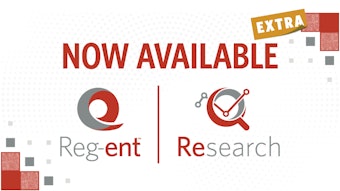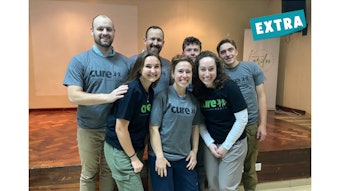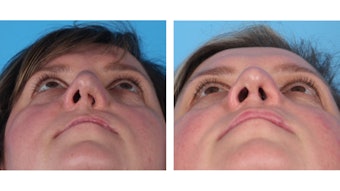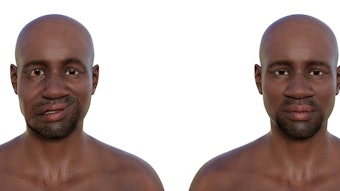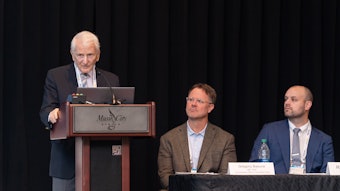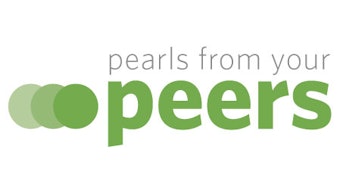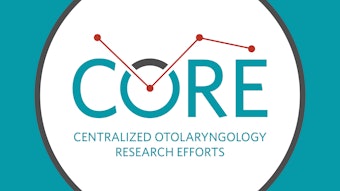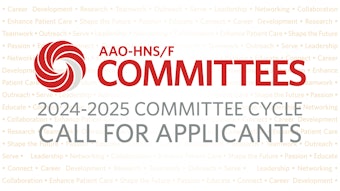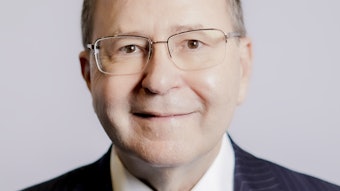Truth Be Told
The residency program application and interview processes are all about finding the best individuals who will provide the best otolaryngology care possible. Honesty is the best policy.
Although each part of the residency program application plays a crucial role in an applicant’s matching journey, panelists during the “Next Steps to Matching into Residency – Medical Student Panel Presentation” at the AAO-HNSF 2023 Annual Meeting & OTO Experience discussed that one piece of the application might just have more weight and make the difference between whether or not a residency program ultimately decides to match with an applicant.
“We can read what research you did, who you worked with, and what publications you have on the rest of the application, but that’s [the personal statement] your one place to really shine,” said Cristina Cabrera-Muffly, MD, University of Colorado otolaryngology residency program director.
The panel, comprised of individuals who are a part of the decision-making process at their respective residency programs, implored future residency program applicants to get into the details of their background and share how their experiences shaped them into who they are today and led them to the field of otolaryngology. Everyone has a story to tell, and the personal statement is the perfect place to tell that story, truthfully.
“In an application and in all of its aspects, especially within your personal statement, honesty and truth shine like a beacon,” said panel moderator Gregory W. Randolph, MD, professor of otolaryngology-head and neck surgery at Harvard Medical School.
The truth doesn’t always have to be positive, but if a particular experience had a significant impact on an applicant, then the applicant should share it if they’re comfortable.
“Your personal statement is your personal statement. It is perfectly fine to express what you want to express,” said Sarah K. Wise, MD, Emory University’s otolaryngology residency program director.
Sonya Malekzadeh, MD, director of the MedStar Georgetown University Hospital (MGUH) residency in otolaryngology, said applicants should tailor their personal statements to focus primarily on themselves and their stories and not so much the field of otolaryngology itself.
“Don’t sell me on the specialty of otolaryngology,” Dr. Malekzadeh said. “I know it’s a great specialty. Sell me on you. This is your chance to sell yourself.”
Another opportunity for applicants to sell themselves is during the formal interview process. Panelists assured future residents in the audience that it’s perfectly OK—and normal—to be nervous during an interview. To alleviate some of the nerves, they recommended applicants only include information on their applications that they feel comfortable talking about (and will remember, because a decent amount of time passes between when an application is submitted and the interview). They also suggested that applicants interact as much as possible during the interview so that it’s more of a conversation rather than a simple Q&A. Those conversations should feel comfortable since that program will be where a resident spends the next five years of their life.
Most importantly, panelists agreed that applicants should show up to interviews as their true, authentic selves.
“Be yourself, because we’re going to figure out who you are if you come to residency with us, so you might as well be yourself right upfront anyway,” said Stacey T. Gray, MD, program director of Harvard University’s otolaryngology residency program.
The interview process allows residency programs to meet with an array of diverse candidates. The panel highlighted the benefits of having diverse residency programs.
“We know that our patient population is incredibly diverse, and the people who provide care for them should reflect that diversity as well,” Dr. Wise said. “It’s been my experience that having diverse experiences and backgrounds only improves our outcomes in education and in care for our patients.”
The panel also agreed that intentional efforts must be made to increase diversity in the field of otolaryngology. Some things that have worked include designing activities, programs, and processes to capture diversity among residency programs, faculties, and students.
Diversity comes in all facets. Beyond heterogeneity in racial, ethnic, sexual orientation, and gender representation, diversity can also come in the form of having residents from different geographic areas and various economic backgrounds. Diversity also means having people with various strengths and perspectives. One person in a residency program may have spent a lot of time doing volunteer work while another may have an interesting approach to taking care of patients.
“I don’t think there’s any question just with the way that we approach problems, the way that we solve problems, that that improves when you have people who think differently,” Dr. Gray said.
Sometimes the process of increasing diversity means that someone must be the first. Dr. Cabrera-Muffly noted that she was the only woman resident when she started her residency program, but by the time she graduated, the program was an equal split of men and women.
“Sometimes you just have to be there and do that, but if [the] culture supports you in that way, then you can open doors later on,” Dr. Cabrera-Muffly said.
Ultimately, the residency program application and interview processes are all about finding the best individuals who will provide the best otolaryngology care possible.
“The club you’re knocking on the door to get into means you must be committed to superb patient care and to try and be the very best surgeon you possibly can. That is not negotiable,” Dr. Randolph said.
Residency interviews usually occur October through January of an applicant’s fourth year. The Academy wishes all those going through the residency program application process the best of success during their matching journeys!
The Academy offers the following additional resources:
Webinar: Updated Residency Application Requirements Webinar recording now available!
How Do I Match in Otolaryngology?



